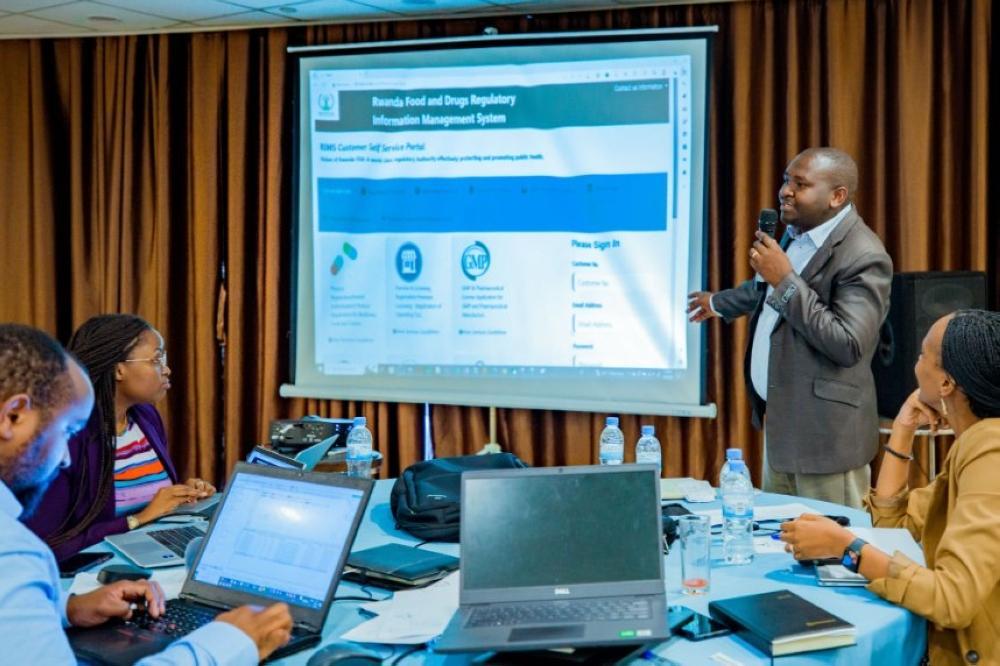Africa-Press – Rwanda. In efforts to address persistent delays in service delivery, Rwanda Food and Drugs Authority (FDA) is banking on its newly launched Integrated Regulatory Information Management System (IRIMS) to streamline regulatory processes and enhance efficiency, officials said.
Up to 88 per cent of 1,027 applications the FDA received between 2021 and 2024 were delayed for periods ranging from one month to over three and a half years, according to the Office of the Auditor General.
FDA Director General Emile Bienvenu said the digital platform is designed to accelerate the submission and review of client documents, reducing the backlog that has long been caused by the limitations of manual systems.
Bienvenu said this on Monday, July 14, as he appeared before the Parliamentary Public Accounts Committee (PAC), to respond to issues raised in the Auditor General’s report for the fiscal year 2023/24.
The audit report on Rwanda FDA also revealed inspection delays for new premises applying for licenses, including pharmaceutical manufacturing sites and facilities for medical devices and diagnostics.
Such inspections are legally required within 15 working days of application. However, from 2022 to 2024, 38 per cent of 259 applications were delayed, with waiting periods ranging from seven to 81 days.
Bienvenu attributed these delays to an overwhelming number of paper-based dossiers, some of which were inherited from the Ministry of Health’s pharmacy task force that handled them before the establishment of the FDA as an independent regulatory body.
“In response to the Auditor General’s findings, we initiated a shift to digital systems. The launch of IRIMS has already led to visible improvements in service delivery,” he said.
“The system enables clients to submit dossiers electronically, track progress, and receive feedback in real time. It is supported by an internal timeline-tracking tool that alerts FDA staff as deadlines approach, helping prevent further delays.”
Bienvenu noted that staff have undergone training on the use of the new system, and the FDA has drawn lessons from regulatory bodies in more advanced countries.
“We have signed cooperation agreements with similar agencies to benchmark and improve our own regulatory practices.” he added.
Regarding the delayed inspection of new premises, he cited limited human resources as a key challenge.
“In 2023, we had only one inspector overseeing over 1,000 pharmacies across the country. That was not sustainable.”
He said, however, that the situation has since improved, with the FDA now employing more than ten inspectors to monitor the country’s 1,152 registered pharmacies. The rollout of digital tools across departments, he added, is further streamlining service delivery.
Bienvenu also revealed that the regulatory body has strengthened its workforce, with several staff members already recruited after the auditor’s report, and many more currently in the recruitment process.
For More News And Analysis About Rwanda Follow Africa-Press






